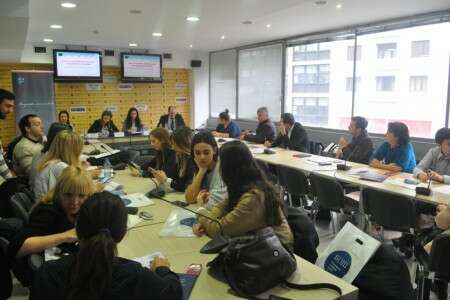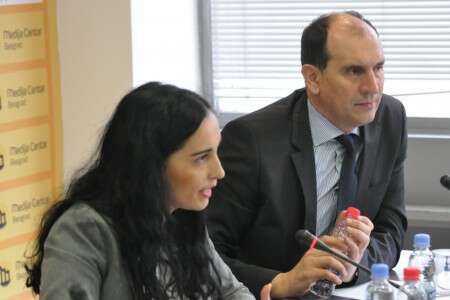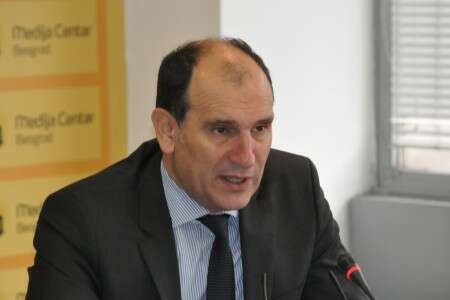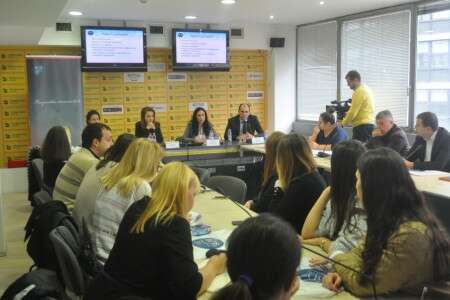Belgrade Open School (BOS) yesterday organized a conference on a subject of quality of higher education institutions (HEIs) in Serbia “Law on higher education and perspective for quality”, in Media center in Belgrade. Results of the research about the process of quality assurance were presented during the conference, so as policy brief "Quality assurance and open data for ranking in Serbian higher education - we are ready for it".
In a period from 19th April until 14th August, BOS has implemented a research about the process of quality assurance in HEIs of Serbia, in the scope of TRAIN program (Think Tanks providing Research and Advice through Interaction and Networking). The research included analysis of websites of 132 HEIs, survey among students, and interviews with the representatives of HERE team (Higher Education Reform Experts team), Commission for accreditation and quality assurance (CAQA), Ministry of Education, Science and Technological Development, Students Conference of Universities in Serbia, Center for Educational Policy, Club 500. The goal of the research was to measure the level of transparency in procedures of quality assurance and to give recommendations for the improvement of that procedure.
The main conclusions of the conference is that there are no clear indicators for accession of the quality of HEIs, so the reports of external quality audit which CAQA is in charge for, are non-transparent, different in structure and prone to subjective conclusion of the accessors. Moreover, intern procedures of CAQA are also non-transparent, so it is not clear how the accessors are selected and how the HEIs which are going to be audited are selected. The commission lacks resources for performance of their main tasks, which significantly affects the quality of their work. Even though HEIs should inform public about their quality via report of self-assessment of quality, 42% of our sample of HEIs doesn’t publish those reports on their websites. One of the shortages is the fact that no foreign experts are included into the process, which is currently enacted only for the PhD studies. So, the BOS recommends to introduce the indicators for quality assurance standards, to introduce the concept of open data into the reports about external quality audit, to introduce foreign experts into the procedure of quality assurance and to increase the level of access to information about the quality, especially of the websites of HEIs.
Panelists professor PhD Zorana Luzanin and Ms Ivana Ceneric, researcher in the Center for Educational Policy, agreed with the conclusions. The discussion included new Law on Higher Education, adopted on 27th September 2017. Professor Luzanin has pointed out that new solution is not harmonized with the Strategy for Education, and that the autonomy of the university has declined. Also, she stressed that there are no clear standards for the evaluation of teaching, and there is no registry of titles. Ms Ceneric reminded that there were recommendations earlier that National Council for Higher Education should be independent from the Government, in every aspect, including financial, but is seems that the new Law brought the opposite.
The conference was attended by the founders of the Association of professors and researchers, who started a petition against new Law for Higher Education, which currently has 1800 signatories, members of the Serbian Academy for Science and Art, among others. You can read more about the petition on the website of the Association.





